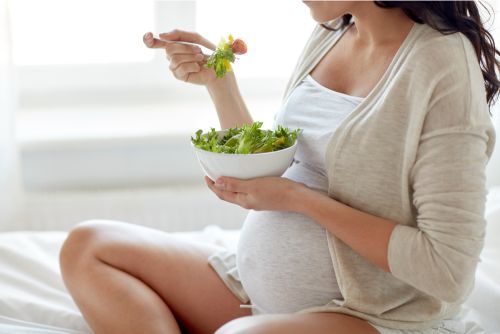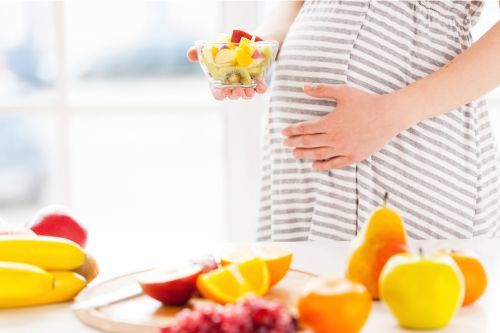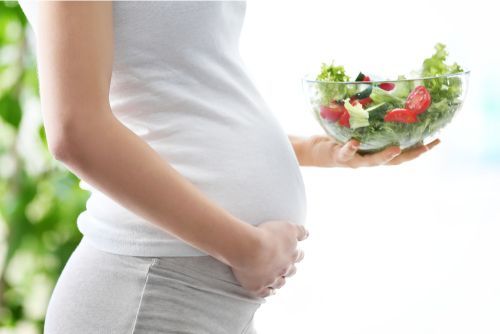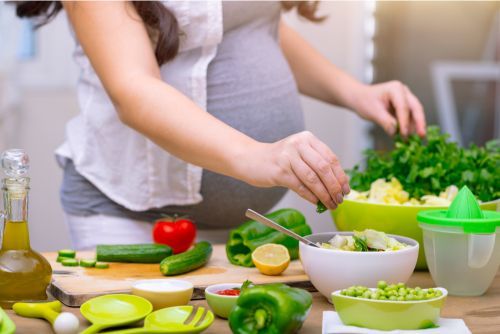

Most pregnancies are normal, but some women need “extra “attention” because of the intricacies involved right from the initial stage of conception. Any co-morbid condition encountered during pregnancy such as elevation in-blood glucose, blood pressure, liver enzymes can make a strong impact on the chances of having a good maternal and fetal outcome.
Do you want to know the "Estimated date of when your baby is due?" Check out Cloudnine's Pregnancy Due Date Calculator now!
Hence in cases where the maternal and fetal outcome is unpredictable, questionable, it is termed as High-Risk Pregnancy. In a few instances, the morphology of a woman’s Uterus can also be considered to reasonably predict the element of “High Risk”. Your Obstetrician is the best person to decide or confirm the High-Risk aspect of your pregnancy. Those who fall into the category of “High Risk” need excellent medical care, nursing support, social services, ample guidance from nutritionists and regular follow-ups, if necessary.
To Consult: The Best Pregnancy Doctor in Noida
In addition to medical support, a strongly embedded sense of positivity is highly essential for supporting a High Risk or a complicated pregnancy. Working on stress levels to the point of keeping them subdued or negligible is a major contributor to reduce the extent of complications in pregnancy.

But it's important to remember that being at high risk doesn't mean that you or your baby are bound to be burdened with health issues every other day. All that is anticipated from you is a disciplined lifestyle with due importance attached to the medicines prescribed followed by the regular follow-ups with your Obstetrician and a very happy frame of mind that is verily enjoying the existing state of “carrying a baby”!
Must Read: Foods to be included/excluded during pregnancy

To Know More: About The Pregnancy Platter
There is no evidence that any specific diet will increase your chances of getting pregnant or reduce certain complications during pregnancy. Nevertheless, maintaining a good nutritional status, as a part of integral health, even before planning for pregnancy can have a good impact on the outcome of the pregnancy.

Some foods are rich in specific nutrients that are necessary for the production and function of hormones and balance, fetal development, egg health, sperm health, and blood health.

1. Nutrient
Calories
Benefits
Additional calories are required for Anemia, Multiple pregnancies, Small baby, Postpartum haemorrhage The “extra” calories are to accommodate for the deficit in growth or in nutrient levels where Energy balance makes a mark Moderate calories – Obese, Diabetes, and Large Babies; over nourishment is dealt with moderation in Calories instead of a gross restriction as a part of nutrition intervention
Foods
Just need an added 300 - 350 calories in a day as per condition
2. Nutrient
Carbohydrate
Benefits
Carbohydrate exchange should be maintained in Gestational Diabetes, Obese, PCOSWhole grains and legumes Vitamin B1, B2, Niacin, zinc, selenium, magnesium – helps in fetal, tissue and organ development
Foods
Try to have complex carbohydrates such as whole grains - Bread, Chapati, noodles, oats, barley, corn and brown rice mixed with Simple carbohydrates like white bread, rice & flour, cornflour, Maida and sugar
3. Nutrient
Protein
Benefits
Building blocks of body cells. Rich in iron, calcium, protein, vitamin D, B12 and folic acid Amino acids are needed for body tissues like muscles, blood, nerves, bones, teeth and all organs. Proteins give an added advantage of keeping the Carb intake under check.
Foods
Food sources rich in protein are an egg, fish, chicken, soya bean, lentils, peas, milk, curd, buttermilk, soya milk, cheese, ghee, butter and paneer. Need “exaggerated” protein intake for supporting an IVF and complicated pregnancy
4. Nutrient
Vegetables & Fruits
Benefits
Rich in calories, vitamins and minerals, antioxidants, phytochemicals, potassium, magnesium and fiber Green and yellow vegetables rich in vitamin A, beta-carotene, fiber, vitamin E, riboflavin, folic acid, vitamin B6, calcium, and trace minerals Antioxidants, vitamins and minerals which help to protect egg and sperm health from the damage caused by free-radicals Helps to prevent constipation and haemorrhoids Fruits are also packed full of essential vitamins and minerals necessary for the baby's growth
Foods
Green and yellow vegetables for Gestational Diabetes, Obese, Large Babies, PCOS - Restrict intake of High Glycemic Index Foods – Potato, Yam, Jackfruit, Pineapple, Sapota, Guavas etc.
5. Nutrient
Iron
Benefits
Still, birth, postpartum haemorrhage, ectopic pregnancy, placental abruption, anaemia, PCOS, DVT, multiple pregnancies, placenta problem, bleeding
Foods
meat, fish, dates, peach, raisins, rice flakes, soya bean, pumpkin seeds

6. Nutrient
Omega 3 fatty acids
Benefits
Needed in the early stage of pregnancy, throughout pregnancy
Foods
Avocado, flax seeds, egg, walnuts, soya bean, Fish
7. Nutrient
Salt
Benefits
It is required for maintaining blood pressure and normal fluid balance in the body and transmitting nerve impulses
Foods
In pre-pregnancy hypertensive or pregnancy-induced hypertensive states, reduce salt intake and avoid processed, preserved and readymade foods
8. Nutrient
Fluids
Benefits
Water is essential for semen volume and the fluid nourishing the eggs, IVF, Ovarian Hyper Stimulation Syndrome. Water also reduces your chance of constipation, reduces your risk of developing a urinary tract infection and subsequent haemorrhoids that can develop from straining during defecation
Foods
Need 3 to 4 liters daily Omit caffeinated drinks, aerated drinks which act as diuretics
9. Nutrient
Caffeine and Alcohol
Benefits
Contraindicated – IVF / in High-Risk pregnancies
Foods
Many studies have demonstrated that drinking coffee, tea and caffeinated soft drinks can result in delayed conception rates and at times associated with a concomitant increase in the risk of miscarriages.
Hence, it is better to bid a temporary farewell to Caffeine to take a safe stand infertility.
The above-furnished information related to IVF/complicated pregnancy are generalized guidelines and cannot be considered as an individualized prescription. It is better to consult a Nutritionist and have a structured meal plan in place to help attain the desired results.
Must Read: Vinegar in Pregnancy
In many cases, IVF pregnancies involve multiple hormonal injections and phases of complete bed rest (temporary though), restricted exercising regime and so on. Hence, a combined admixture of three D’S - Diet, Drug and DE- stressing can help in reducing the factors of risk involved in the pregnancy.



